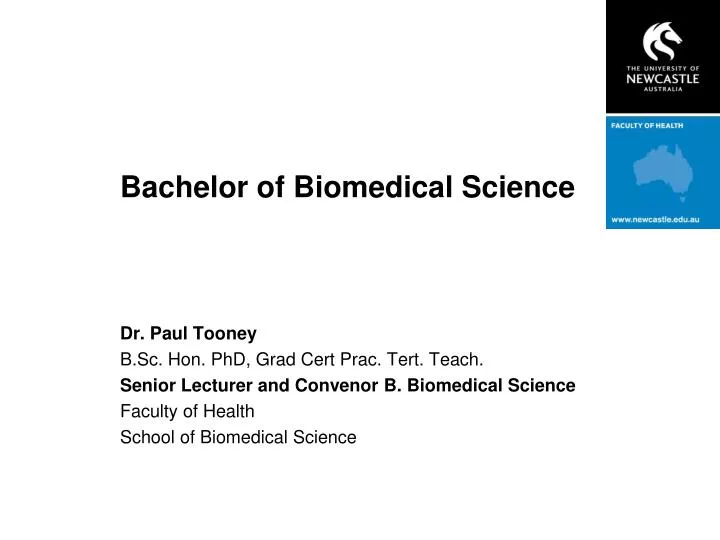

Without a doubt, biomedical science will be among the sectors that will drive advances in science and technology to enhance the health and well-being of individuals, demographic groups and communities. Related Resource: Top 10 Biology, Biological and Biomedical Sciences Degree Programs at Christian Colleges Future of Biomedical Sciences It is not unusual for biomedical scientists to hold a degree in medicine, nursing or other healthcare fields or a doctorate in life sciences. Advance degrees in the sciences or in education will provide an advantage in career advancement. Others may end up with government agencies tasked with monitoring and administering community health programs. Some graduates will favor careers in the academe as instructors, researchers or both. Not everyone in this field will end up in research and development although this is the primary goal of many biosciences majors. During this phase, students are provided with hands-on experience in laboratory procedures as part of the curriculum, a practicum and through an internship. Preparation for a career in this field starts with an undergraduate degree in the life sciences, which may be a bachelor’s degree in biology, zoology, biochemistry or related fields. Required laboratory skills include familiarity with equipment and materials along with rigorous compliance with scientific procedures and safety measures. This means efficiency and accuracy in data gathering and documentation along with in-depth analytical skills to examine results and possible outcomes. As a biomedical scientist, one should have a natural curiosity to investigate specific issues, using rigorous and accepted scientific procedures.

It is a research-intensive field, much of which may be in a laboratory setting in public or private institutions. Competencies for Biomedical Science MajorsĪs the name indicates, this field of study leads to careers in the life sciences. At the same time, it is also a very broad field that intersects with various sectors such as pharmaceutical research, development and manufacturing as well as education and various levels of healthcare practice. It is a specialized field that requires strong analytical, research and laboratory skills. Some of the most pressing biomedical issues of today include disease prevention and immunology, nutrition and community health concerns. This field will include expertise in anatomy and histology, epidemiology, pharmacology as well as biochemical and physiological functions. Biomedical science is the study that combines the fields of biology and medicine to address health and wellness issues of humans and animals.


 0 kommentar(er)
0 kommentar(er)
